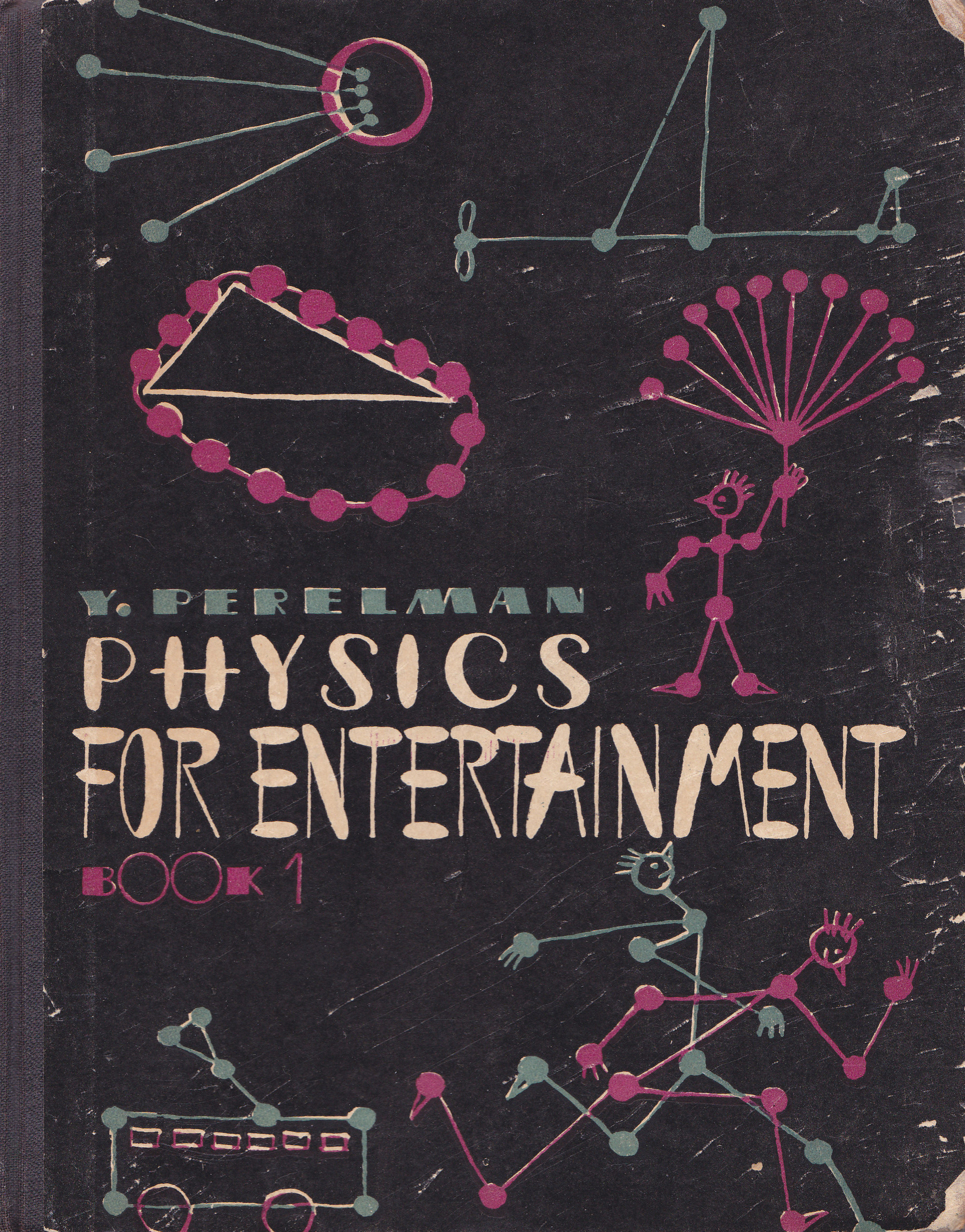Published in 1913, a best-seller in the 1930s and long out of print, Physics for Entertainment was translated from Russian into many languages and influenced science students around the world. Among them was Grigori Yakovlevich Perelman, the Russian mathematician (unrelated to the author), who solved the Poincaré conjecture, and who was awarded and rejected the Fields Medal. Grigori’s father, an electrical engineer, gave him Physics for Entertainment to encourage his son’s interest in mathematics. In the foreword, the book’s author describes the contents as “conundrums, brain-teasers, entertaining anecdotes, and unexpected comparisons,” adding, “I have quoted extensively from Jules Verne, H. G. Wells, Mark Twain and other writers, because, besides providing entertainment, the fantastic experiments these writers describe may well serve as instructive illustrations at physics classes.” The book’s topics included how to jump from a moving car, and why, “according to the law of buoyancy, we would never drown in the Dead Sea.”
Physics for Entertainment
